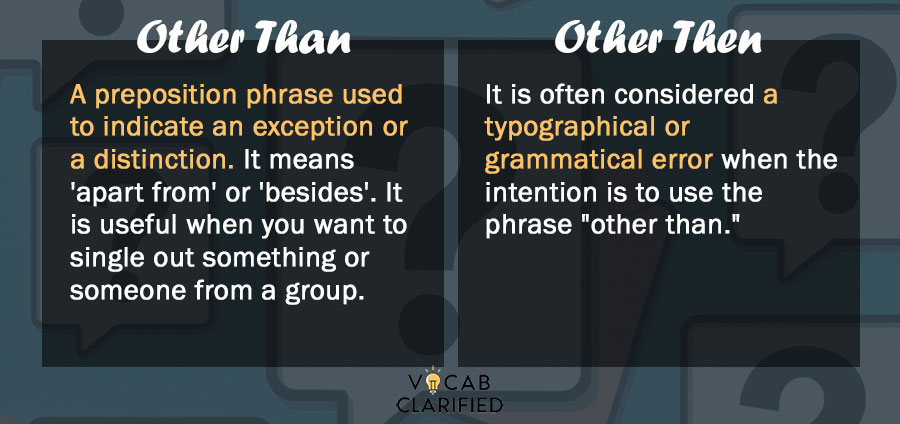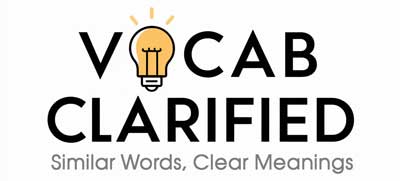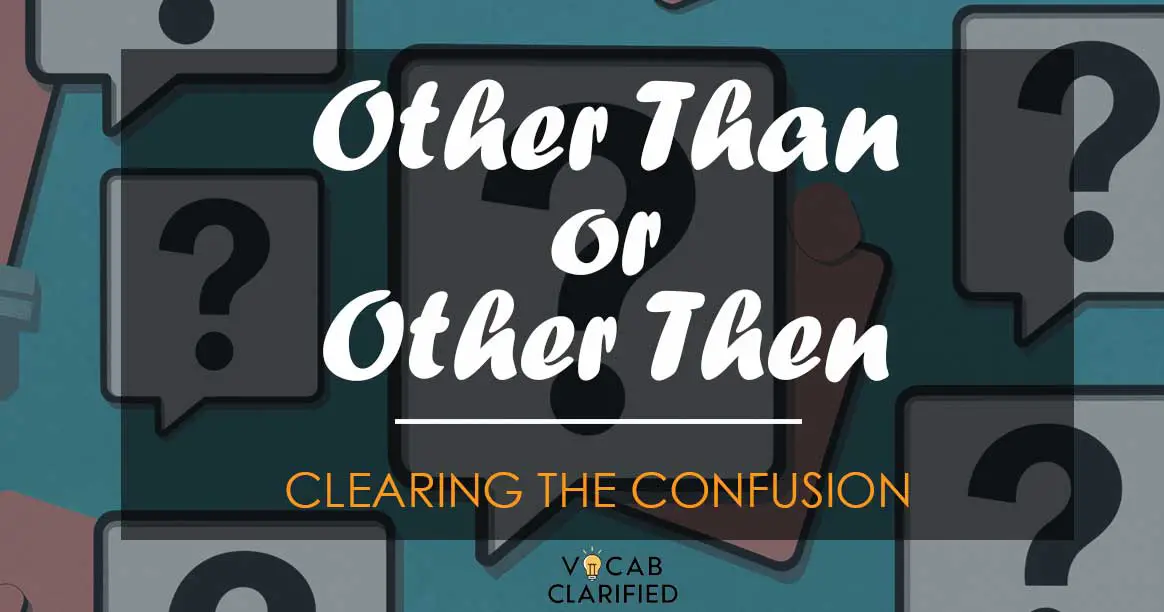The English language is riddled with phrases that sound similar but carry entirely different meanings. Among these are “other than” and “other then”, two expressions that often confuse.
This article wants to make these terms easier to understand. It will give you straightforward rules on how to use them correctly and help you avoid the typical mistakes that come from how similar they are.
Understanding “Other Than” and “Other Then”

Other Than: Definition and Usage
“Other than” is a preposition phrase used to indicate an exception or a distinction. It means ‘apart from’ or ‘besides’. This phrase is useful when you want to single out something or someone from a group.
For example:
- Everyone, other than Jake, arrived on time.
- There’s no one she trusts other than her sister.
Other Then: Common Misuse
Interestingly, “other then” is often considered a typographical or grammatical error when the intention is to use the phrase “other than.”
However, if we separate the words and use them in a context where “then” refers to a time, it could make sense in a different construction, though this usage is extremely rare and typically not what people intend. For example:
- If there were other times, then those moments have faded from memory.
Side-by-Side Comparison
| Aspect | Other Than | Other Then |
| Definition | Used to indicate an exception or a distinction, meaning ‘apart from’. | Often a misuse for “other than.” Correct usage would separate the terms and use “then” in a temporal context. |
| Common Usage | To exclude something or someone. | Rarely used correctly; generally considered an error. |
| Key Differences | A preposition phrase used correctly in comparison or exclusion scenarios. | Not a standard phrase; often a typo or error except in very specific temporal contexts. |
Everyday Usage Examples
For “Other Than”:
- There’s no option other than to cancel the trip.
- She had no interest in any subject other than mathematics.
- Other than a few minor setbacks, the project was a success.
- Is there anyone other than Sam who knows the code?
- Other than the rain, it was a perfect day for a picnic.
Given the rare and often incorrect use of “other then,” focusing on “other than” will significantly improve the clarity and correctness of your writing.
FAQ: Other Than vs. Other Then
“Other than” means “except for” or “besides.” You use it when you’re talking about something that’s different from what you just mentioned. “Other then” is actually a mistake people often make when they mean to say “other than.” There is no situation where “other then” is the right choice if you’re trying to say “except for.”
Some words or phrases that mean the same thing as “other than” include “except for,” “aside from,” “besides,” “apart from,” and “excluding.” You can use these when you want to say something is an exception to what you’ve mentioned.
No, “other then” isn’t correct if you’re trying to say “except for” or “besides.” It’s a common typo or error. The correct phrase is “other than.”
Not really, because “other then” is usually just a mistake. But remember, “then” is a word we use for time or sequence, like “back then” or “first this, then that.” Just keep in mind that it’s unrelated to the meaning of “other than.”
Yes, depending on the context, you might find it easier to use phrases like “except for,” “aside from,” “besides,” or “apart from.” These can often be used interchangeably with “other than” and might fit better in your sentence or sound more natural to you.
Conclusion
Understanding the distinction between “other than” and the commonly mistaken “other then” is crucial for clear and precise communication. “Other than” is the correct phrase to express exclusion or exception, while “other then” is generally a mistake or a typo.

